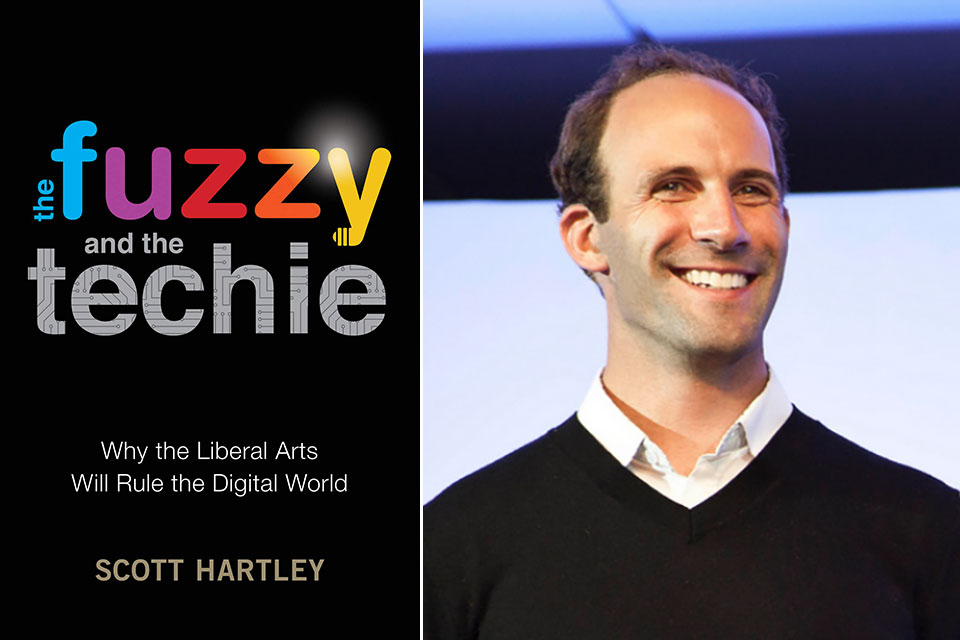Best-selling author, venture capitalist to keynote Convocation ceremony

Students who pursue an academic experience that includes a healthy dose of liberal arts studies are preparing themselves to take the most important tech jobs of tomorrow, argues best-selling author and venture capitalist Scott Hartley, who will present the keynote address during Salve Regina’s Convocation ceremony on Tuesday, Sept. 3.
The annual ceremony, which officially opens the new academic year and serves as a welcome to the University’s new students, will be held at 3 p.m. on the Gerety Hall lawn. The public is welcome to attend.
Hartley, author of “The Fuzzy and the Techie: Why the Liberal Arts Will Rule the Digital World,” says the intersection of technology and the liberal arts is where truly great things happen despite a trend in which “trashing the liberal arts has become almost like a sport.”
“The great irony of all this criticism is that it’s the liberal arts and their cultivation of distinctively human abilities – which machines can’t yet even approximate – that are paving the way to the most reliable employment today and will continue to do in the coming years,” Hartley writes.
Hartley is managing partner of Two Culture Capital, has served as a Presidential Innovation Fellow at the White House and has worked for Google, Facebook and Harvard University’s Berman Center for Internet and Society. His work has been published in Forbes, the Financial Times, Foreign Policy, Boston Review and more. His best-selling “The Fuzzy and the Techie” was a Financial Times business book of the month and a finalist for the Financial Times and McKinsey & Company’s Bracken Bower Prize for an author under age 35.
“If we peer behind the veil of our greatest technology, we will see that it is distinguished by its humanity,” Hartley writes. His thinking parallels Salve Regina’s approach of interconnecting academic programs to form a stable foundation for students to reflect and learn within the context of Catholic values.
“When we think about the world’s problems and how we want to solve them, we need to think about them in this integrative way,” says Dr. Kelli J. Armstrong, who will preside over her first Convocation since beginning her tenure in July as the University’s eighth president. “We need good minds and approaches to these topics. Working together, our scientists and our humanists are able to see connections across disciplines and bring effective solutions to the communities that need them. Our curriculum embraces that sort of challenge.”

